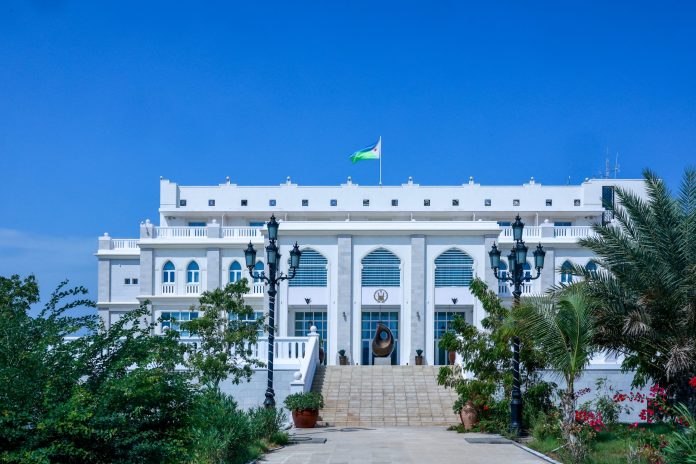DJIBOUTI, Djibouti – The Djiboutian government on Tuesday welcomed a London arbitration tribunal’s rejection of DP World’s billion-dollar damages claim, hailing the ruling as “a particularly significant victory” in its long-running battle over the Doraleh container terminal.
In a statement, the Presidency said the decision — handed down on Sept. 29 by the London Court of International Arbitration (LCIA) — marked “a particularly significant victory for the Republic of Djibouti and for Port de Djibouti SA (PDSA).” The ruling, it added, “once again reaffirms the legitimate rights of the Republic of Djibouti.”
DP World had sought nearly USD 1 billion from PDSA, alleging losses after Djibouti terminated its concession in 2018. However, the tribunal ruled that PDSA, a private entity, was not liable, as the cancellation resulted from “a sovereign decision of the Republic of Djibouti.”
The claim was dismissed as “unfounded and entirely rejected,” with DP World ordered to cover all arbitration costs and reimburse PDSA’s legal expenses, totaling USD 1.85 million.
The government condemned what it called DP World’s “abusive litigation strategy and media pressure tactics,” stressing that only “a direct agreement between DP World and the Republic of Djibouti” could bring the commercial dispute to an end.
Background of the dispute
The row originates from the Doraleh Container Terminal (DCT), a strategic port located near Djibouti City. The concession was awarded in 2006 under English law, giving DP World a one-third stake and operational control, while the government held the remainder through PDSA.
By 2014, Djibouti initiated arbitration against DP World and DCT, accusing the company of corruption and other irregularities in securing the deal. DP World countered with claims of unpaid royalties and breaches of exclusivity.
Between 2016 and 2017, the LCIA issued partial awards. In February 2017, it dismissed Djibouti’s bid to annul the concession, and in June 2017, it ordered Djibouti to pay costs.
In August 2018, Djibouti abruptly terminated the contract and seized control of the terminal — a move DP World branded illegal. The LCIA later ruled that Djibouti had no legal basis to cancel the concession, which “remains valid and binding notwithstanding … the 2018 decrees.”
In April 2019, the tribunal ordered Djibouti to pay roughly USD 385 million plus interest. Senior officials in Djibouti rejected the award, arguing the tribunal’s decision infringed on the country’s sovereign rights.
Aboubaker Omar Hadi, then head of Djibouti Ports and Free Zones, bluntly declared: “We are not concerned by what the London Arbitral Tribunal has said … the judgment it has rendered does not concern us.”
Since then, DP World has pursued enforcement of LCIA rulings in courts worldwide, including the United States and Hong Kong. In July 2021, another LCIA panel found PDSA in breach of its joint-venture agreement and ordered it to pay DP World’s legal fees of £1.7 million.
A U.S. court recently enforced a USD 200 million LCIA award in DP World’s favor. The company, in response, warned investors to “think twice about investing in Djibouti … [a government] that has no respect for legal agreements and changes them at will without agreement or consent.”
While Djibouti lost several earlier rounds of arbitration, the Sept. 29 decision rejecting DP World’s USD 1 billion damages claim marks a turning point.
Officials in Djibouti insist the matter can only be resolved through direct talks, saying such an agreement would protect “common interests as well as the sovereignty of the nation” and finally close the chapter on the Doraleh saga.


